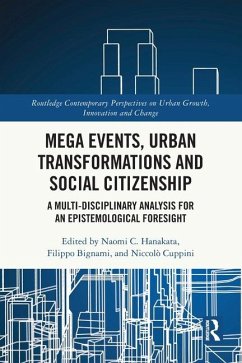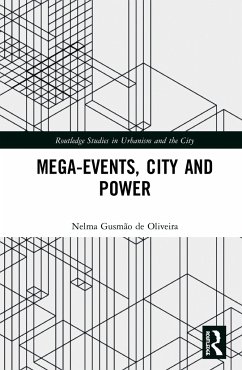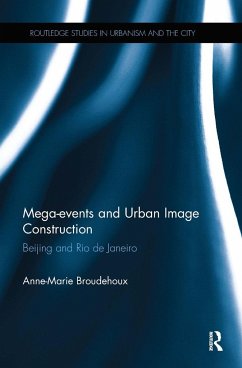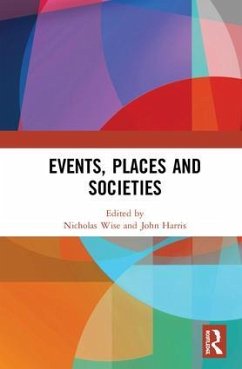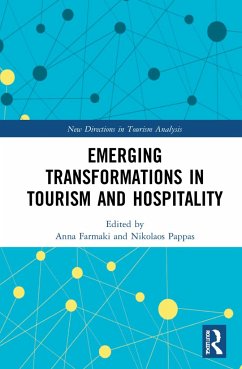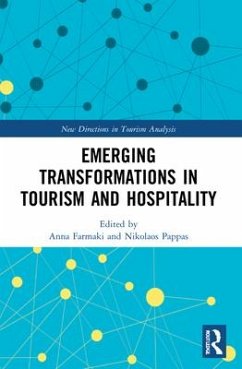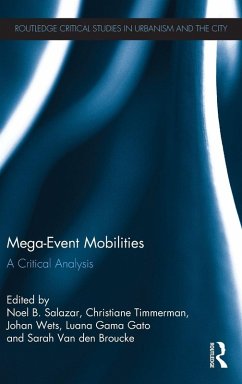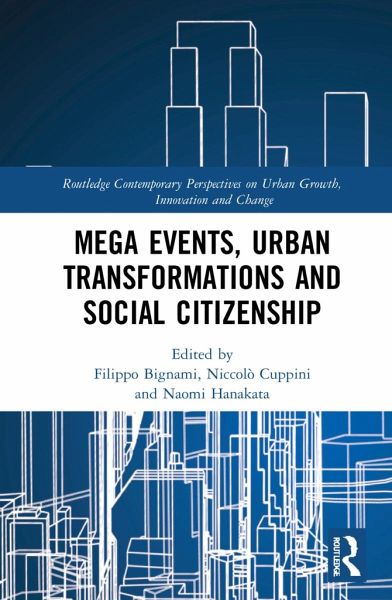
Mega Events, Urban Transformations and Social Citizenship
A Multi-Disciplinary Analysis for An Epistemological Foresight
Herausgeber: Hanakata, Naomi C.; Cuppini, Niccolò; Bignami, Filippo
Versandkostenfrei!
Versandfertig in 1-2 Wochen
167,99 €
inkl. MwSt.
Weitere Ausgaben:

PAYBACK Punkte
84 °P sammeln!
This book provides theoretical and empirical perspectives on the urban impact of mega-events globally. It takes mega-events as an instance to analyse urban transformations and their effects on citizenship. With contributions from leading scholars in the field, the book presents innovative and multidimensional analyses of mega-events with an international selection of case studies. The work provides a grounded theorisation of mega-events in the first part and scrutinizes its practices and processes in the second. Each chapter explores mega-events as crucial drivers and accelerators of urban and...
This book provides theoretical and empirical perspectives on the urban impact of mega-events globally. It takes mega-events as an instance to analyse urban transformations and their effects on citizenship. With contributions from leading scholars in the field, the book presents innovative and multidimensional analyses of mega-events with an international selection of case studies. The work provides a grounded theorisation of mega-events in the first part and scrutinizes its practices and processes in the second. Each chapter explores mega-events as crucial drivers and accelerators of urban and citizenship transformations. Rather than just focusing on a staged momentum, this book takes stock of the 'before' and 'after' that these events imply for the urban condition. This book will be of interest to students and scholars in urban studies, human geography, economics, architecture, planning, sociology, political science. It will also appeal to professionals and policy makers engaged in the planning, hosting and management of mega-events.





